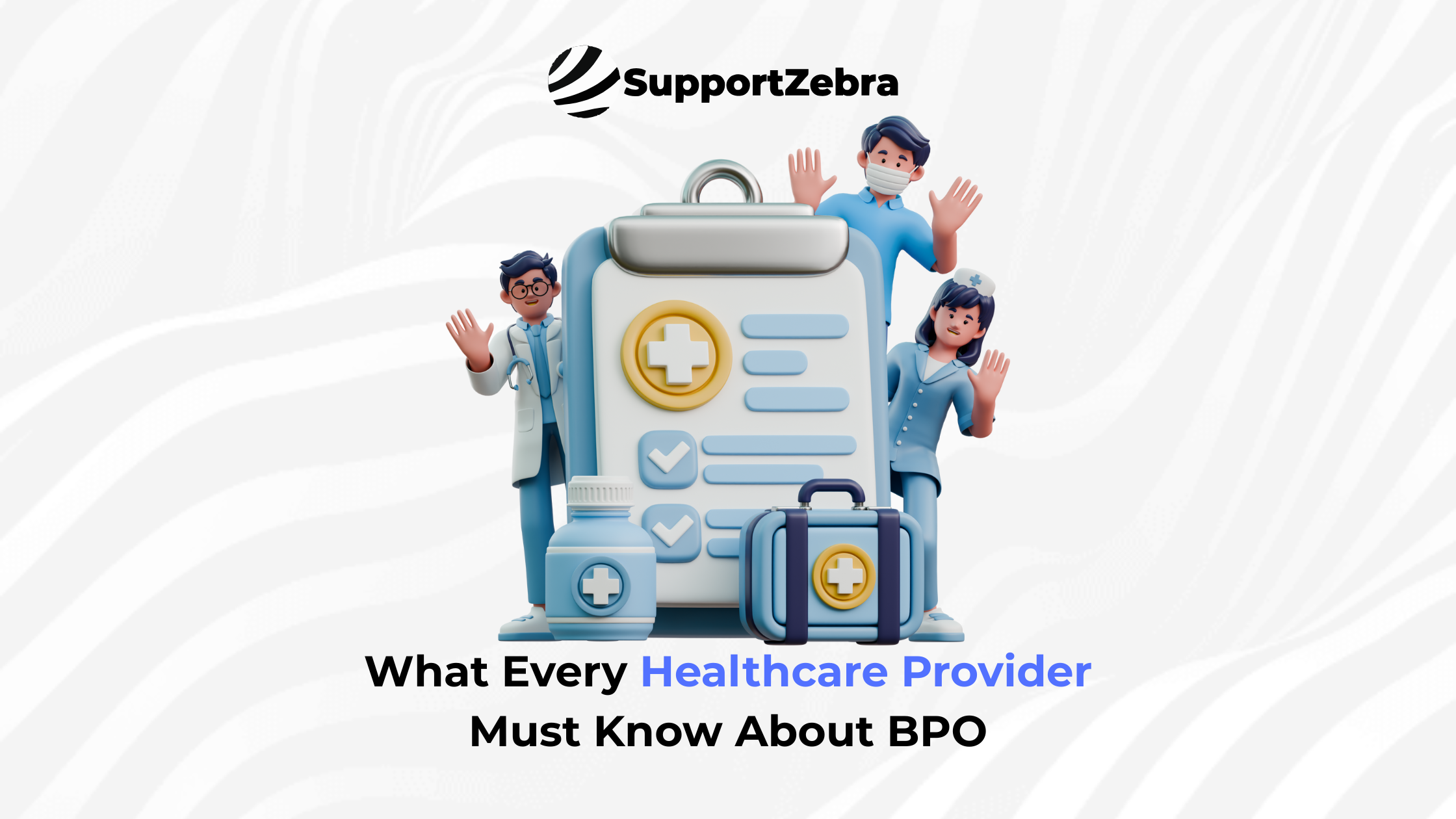Key Takeaways:
- Healthcare BPO streamlines non-clinical tasks, allowing providers to focus more on patient care.
- Outsourcing delivers cost savings, efficiency gains, and access to specialized expertise.
- Choosing the right BPO partner requires focus on compliance, security, and advanced technology.
- SupportZebra empowers healthcare organizations with tailored BPO solutions to improve operations and care outcomes.
Business Process Outsourcing, or BPO, plays a big role in healthcare today. In 2024, healthcare providers use BPO to work more efficiently and spend more time on patient care.
By outsourcing tasks like billing and claims processing, providers can lower costs and reduce staff workload. This guide explains what healthcare BPO is, the services it offers, its benefits, and how to choose the right partner.
What is Healthcare BPO?
Healthcare BPO means hiring an outside company to handle non-clinical tasks. These tasks include medical billing, coding, claims processing, and data entry.
Using BPO helps healthcare providers focus on caring for patients. It also improves efficiency and reduces operating costs. As healthcare rules and systems become more complex, BPO services help organizations stay compliant and organized.
Services Provided in Healthcare BPO
Healthcare BPO companies provide many services that support daily operations. Below are ten common services.
- Medical Billing and Coding
BPO teams submit insurance claims and use correct codes to help ensure timely payments and fewer errors.
- Claims Processing
Providers manage claims from start to finish, helping reduce delays and denied claims.
- Data Entry Services
Accurate data entry keeps patient records up-to-date and compliant with healthcare rules.
- Revenue Cycle Management
This service covers billing, payments, and collections. Outsourcing it can improve cash flow.
- Medical Transcription
Audio notes from providers are turned into written records for easy tracking and billing.
- Insurance Verification
BPO teams confirm insurance coverage before treatment to avoid billing problems later.
- Patient Care Management
These services include appointment scheduling, reminders, and answering patient questions.
- IT Integration Services
BPO companies help manage electronic health records, cloud systems, and digital billing tools.
- Clinical Support Services
Some providers offer services like telehealth and diagnostic support without large investments.
- Human Resources Management
HR tasks like payroll, benefits, and training can be handled by BPO teams to lower costs.
Benefits of Healthcare BPO
Many healthcare providers choose BPO for these key reasons.
- Lower Operating Costs
Outsourcing reduces spending on staff, benefits, and office space. This allows more funds for patient care.
- Better Efficiency and Productivity
BPO services speed up tasks like billing and claims processing. This improves accuracy and reduces staff stress.
- Access to Skilled Experts
BPO partners bring trained teams and advanced tools that may be costly to build in-house. This helps improve service quality and patient experience.
How to Choose the Right BPO Partner
Choosing the right BPO provider is important. Here are five things to consider.
- Healthcare Experience
Pick a partner with strong healthcare knowledge and experience with providers and payers.
- Security and Compliance
Make sure the provider follows HIPAA rules and uses strong data security methods.
- Modern Technology
Choose a partner that uses automation and AI and works well with your current systems.
- Flexibility and Scalability
Look for a provider that can adjust services as your needs change.
- Quality and Performance Tracking
Review their quality checks, service level agreements, and reporting methods.
A careful review helps ensure a safe, effective, and successful partnership.
Healthcare BPO with SupportZebra
Healthcare organizations face many challenges today. These include heavy admin work, staff shortages, and strict regulations. BPO helps solve these problems.
SupportZebra is a growing healthcare BPO provider that offers customized solutions for healthcare teams. Their services include customer experience support, social media moderation, and technical support outsourcing.
With a focus on quality, compliance, and innovation, SupportZebra helps providers improve efficiency and patient care.
Ready to improve your healthcare BPO strategy? Contact SupportZebra today to get started.

